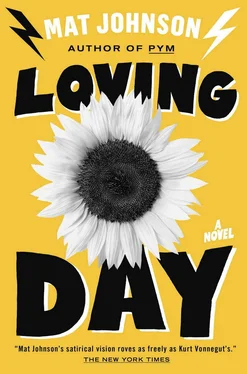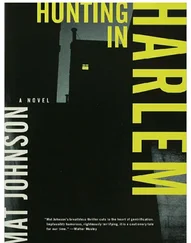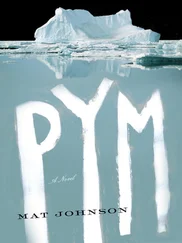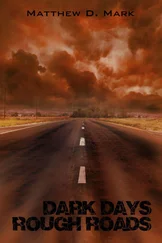“Why don’t you just work on being a dad first, and then build up the expectations from there?” George offers, already on the dirty dishes. He’s washing the damn dishes. He’s not letting them sit in the sink till it overflows with shame.
All this sensationalistic talk about the long-lost mystery daughter, it’s wonderful. I dreaded coming here to these two people and having to say that my marriage failed, that my life has failed, that I wasn’t strong enough to do a basic thing like properly fulfill the one person on earth I was legally bound to love. I never gave Becks her family, and that’s why I have none. Tosha and George are of my generation, my tract in life: their familial growth, in such contrast to the wilted state of my own, is a direct reminder of all my shortcomings. Not that they would ever gloat over this fact, to my face or elsewhere. It would be worse than that. There would be pity there. Someone would say something like, “You’ll get it together,” and I would smile and shrug and know that I wouldn’t. I thought of not coming by at all — I hadn’t seen either since before their wedding. But being in Germantown and not stopping by would be an insult. And now, who cares about something so mundane as another marriage turned to disaster when there is tabloid-level fodder like this being served for consumption? In comparison, talk of the ex-wife is mere canapé. I have a synopsis for that too now, a convenient story that offers everything but detail. It goes like this:
“It turns out when someone is brilliant and driven and hardworking, good things happen to them. Even in Britain. So Becks, she’s got her practice going now, consulting, all that. She fronted me the money for the comic-book shop and I think she thought, I mean maybe I did too, that it would be a hit, that it would grow to a chain, maybe into an online juggernaut. But I’m not a businessman. I wasn’t really driven, like she is. And also, you know, I’m a flake.”
“You’re an artist,” Tosha offers generously.
“And Becks started to hate me for that. I think. Not for not being a success like her, but for not moving on. Having kids. She was getting older, the window was closing, she really wanted them. I just wasn’t ready, you know? To double down on more responsibility. So I kinda pulled away. Then she tugged me back, couples therapy, all that. And then I got pissed and pulled away harder. Then she stopped tugging, and it was too late.”
“That’s horrible,” she says to me, but she’s looking at George, who must be listening but is pretending to keep on with his endless kitchen tasks. Tosha is more jarred by my divorce than I am. For me it’s been happening for over a year, after four other years of misery.
“Becks is really very happy now. She’s replaced me with another black American. A proper dark-skinned one with dreadlocks and everything.”
This is true. Becks is ecstatic . Becks is a new life . Becks is a great weight has been lifted . Becks is so overjoyed, on her Facebook page she’s become a Welsh greeting-card machine. If there is a greeting-card company in Wales, and they just need someone to write platitudes for a line of divorce congratulations, Becks has a good decade’s worth of phrases for them. She now produces the happiest posts I have ever read in my life. The messages I get from her solicitor, those are straight venom and threats of financial apocalypse if I don’t get her the money back, but on Facebook she still comes with lots of exclamation points. All that’s missing is Wish you were here!
“What you need to do is relax, make sense of things. Your dad’s passing, this girl, the crazy house.”
“I got crackheads at that house.”
“Everybody’s got crackheads. Look, Germantown’s changed — it’s come back up. This is the hot new place to live, man. Prices are soaring. But this is still Germantown.”
“That night was like…it was eerie. I thought they were ghosts. For a second I was like, ‘This is some paranormal ish or something.’ ” I laugh this out, wait to see their reaction.
Tosha just wags her head.
“There are no ghosts,” she says.
“How can you know that?”
“Because your black ass would already be packed up and leaving town again.” I laugh at this too but she doesn’t, and in the silence I get the feeling I might be being insulted, so I laugh harder till George spares me with his interruption.
“I’ll make sure a squad car makes a regular drive-by, but don’t let those crack fiends mess with your head,” he says.
—
Tosha and George’s children, these three great kids, they are everything my life is missing. I watch George with them, and I’m certain of this. He has purpose and joy, there is a slot in the universe he is fitting, without which there would be a black hole. I totally know, because I live in the black hole. Becks was right. Across the breakfast bar the kids yell out “Uncle Warren” at me and there is an authority in that title. I haven’t earned even “uncle,” and yet still it fills me. I never managed the duties of “son” particularly well, in regard to both my parents. At “husband” I was an even grander disappointment, and I stink of divorced man so bad that even I can smell it, as if every nose hair reeked of its own disappointment. I’ve been failing at “father” for years without even realizing I could claim the title.
“You got to make up the time.” George leans over, puts a hand on my shoulder. Grips. “You have to educate her, man. Tosha’s right on that one. That’s your path to being her father, a chance to give her something. Make sure she gets back to school, and goes to college. You do that, you’ll have started making an impact.”
I make the mistake of asking George how much tuition costs. I don’t know where their kids go to school, but I do know he has to send them to private. George is just a public servant, and that ain’t paying but so much. Tosha is an administrator for the school district, but it doesn’t matter. This is Germantown, and they are middle-class, and I know they’re not letting their little angels loose in Lingelbach Elementary to eek out survival. Our childhood was all about Lingelbach Elementary. It was about finding a school to go to so you didn’t have to go to Lingelbach Elementary. Seeing if you could use a mailing address in Mt. Airy, or getting your parents to send you to private. It was about staying inside in the hour and a half after those kids were released back into the community, lest their tsunami of juvenile chaos catch you in its wave. On some days you could hear their mob coming south on Pulaski at 3:30 P.M., watch the streets fill with the lumpen youth parade before disappearing again. Even my father, as oblivious as he was, would manage to keep in the back of the house during that procession. Tal would be too old for Lingelbach, but my father’s mansion is zoned to Germantown High, the teenage equivalent. I had friends that went to Germantown, the ones that couldn’t find their way out to a magnet program. My primary memory of Germantown was that they threw a math teacher off the roof. This story seems suspect now, maybe nothing more than an urban legend, but the fact that it has taken me thirty years to even question it is because Germantown High is the kind of school where a math teacher being thrown off a roof seems perfectly plausible. Still, when George breaks down how much he’s paying for each child to go to their private Quaker school, for a second I imagine Tal Karp roaming the halls of Germantown High, books in hand. A pioneering young Jewess the likes of which those halls have not seen in sixty years.
“I can’t pay that much.” There’s no sheepishness in my confession. It’s not that I wouldn’t do it; I just don’t have the money. Maybe, maybe if my father’s house sold, I could put that money down, but school starts this week. “Is Germantown High any better now?” I turn to ask Tosha directly. Her strongly negative response involves as much body language as syllables.
Читать дальше












